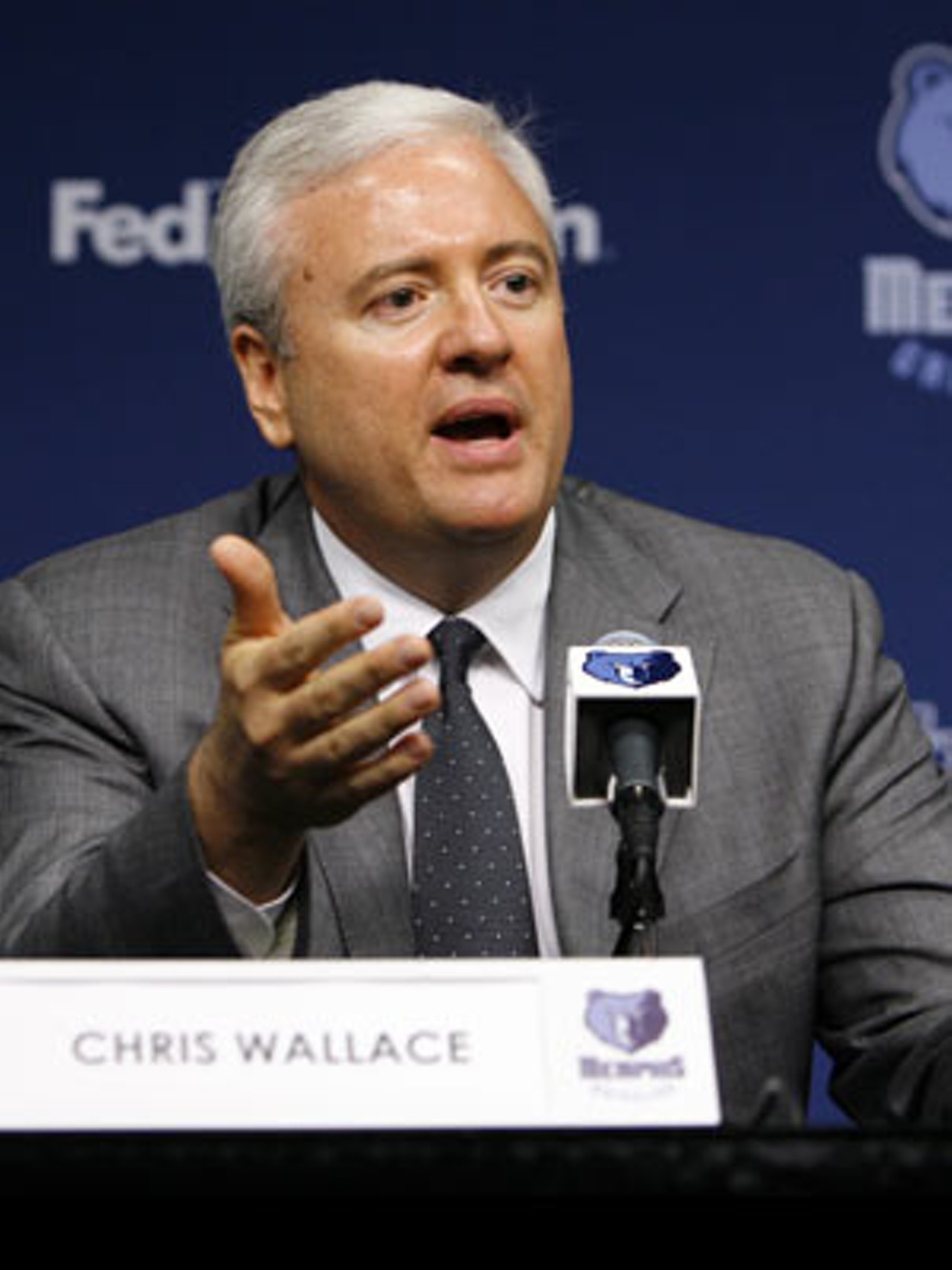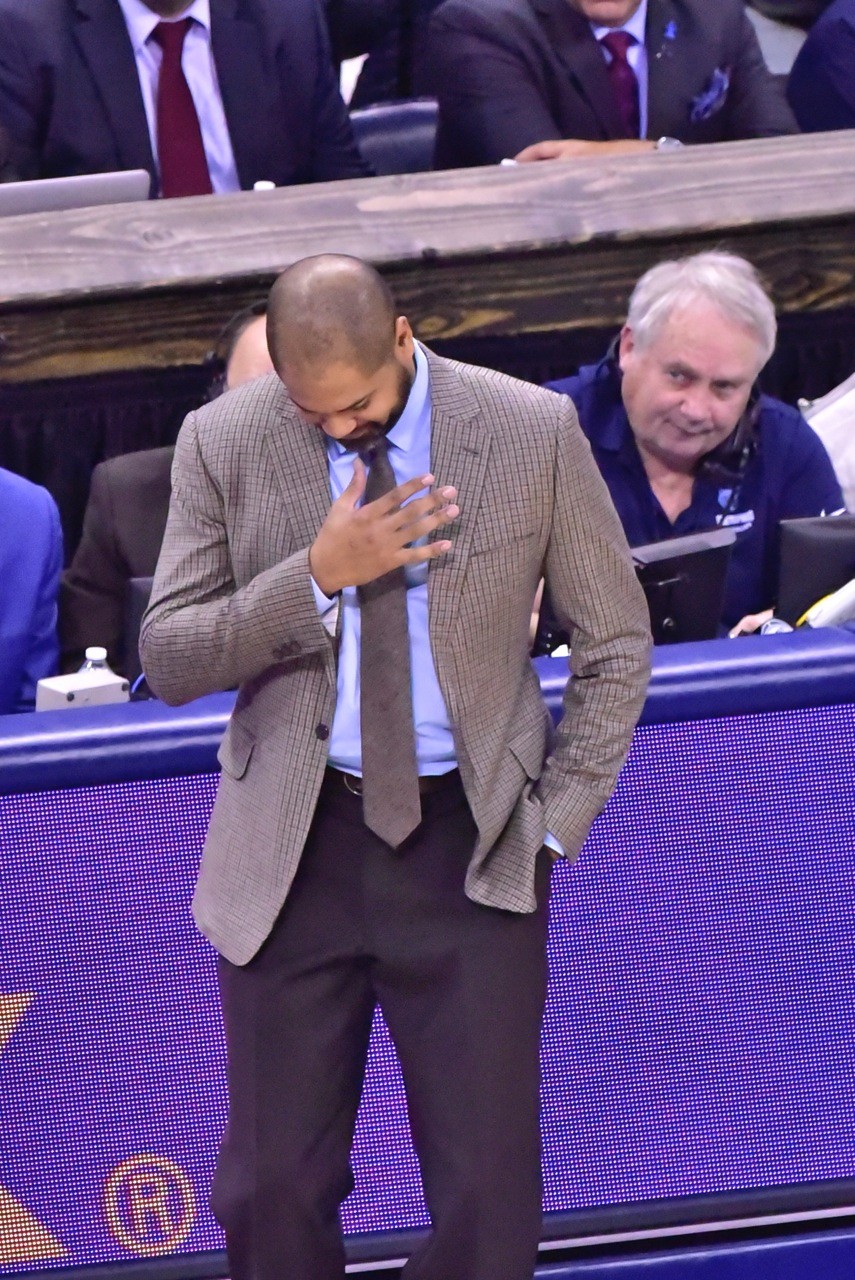I was able to attend the Memphis Grizzlies end of season media availability on Thursday morning. I came into the FedExForum’s practice facility with what I thought were reasonable expectations: I would hear General Manager Chris Wallace give a generic spiel about how the season was a success, in spite of all of the failures; how he was confident in Coach J.B. Bickerstaff, going forward; and how he really didn’t have a plan to announce for next season. I expected to say my final goodbyes to Mike Conley, who I assume has played his last game as a Memphis Grizzly. I even expected Bickerstaff to basically say that he wouldn’t have done anything different, if given the opportunity, when I asked him about reflecting on his first full season as a head coach. 
Grizzlies GM Chris Wallace.
What I didn’t expect was the chaos that ensued just hours after the media availability ended.
Grizzlies majority owner Robert Pera announced, seemingly out of nowhere, that Bickerstaff would be replaced as head coach, and that the front office would be restructured. That restructuring included Wallace and Vice President of Basketball Operations John Hollinger being demoted to lesser roles, and President of Business Operations Jason Wexler being named to oversee both business and basketball operations. Assistant General Manager Zachary Kleiman was promoted to Executive Vice President of Basketball Operations.
Pera’s announcement brought mixed reactions, due mainly to the odd timing of the move in relationship to the media availability earlier that morning, and the fact that Wallace and Bickerstaff had already had exit interviews with each other and with the players. The general feeling coming from the morning press availability was that instead of finding new leadership for the franchise, the team had simply relabeled their organization and would continue doing what they’ve been doing for years.  Larry Kuzniewski
Larry Kuzniewski
J.B. Bickerstaff
The timing of all of this was particularly odd. Wallace could have been demoted literally at anytime during the season, especially after the embarrassment and backlash of the botched Kelly Oubre trade. Bickerstaff also could have been informed that he would no longer be with the team at some point well before he and Wallace had had exit interviews with the players.
The way that the franchise went about doing this just added to the uncertainty about the team’s leadership amongst the players — namely Mike Conley, who is rumored to want to move on; Jonas Valanciunas, who has the decision to opt in or out of the final year of his contract; and Jaren Jackson, who is the franchise’s young and impressionable future star.
Although the timing came off as ill-prepared, and even shady, I still think that the two main things that needed to happen happened: Bickerstaff will no longer be the head coach, and the illusion of Chris Wallace being the decision-maker for this team has come to an end.
I doubt this was a decision Pera made after checking twitter for reactions from media members and fans about what happened at the morning press availability, so surely he could have done this without creating such a need for damage control — or making Wallace and Bickerstaff come off as victims. But at this point, it is what it is — just another reason for national media members to ask what’s going on in Memphis. It’s a bad look.
But it’s also an opportunity for change, a possible step in a much-needed new direction. Yes, the Grizzlies have had four coaches in the past seven years, but that doesn’t change the fact that Bickerstaff just was not the answer. So here we are: A business guy and a lawyer are now in charge of the team. I also expect that someone else will be added to serve in a basketball decision-making capacity, whether it be in a position above Kleiman or in support of him, or even a coach with a general manager role. A (partially) new regime is about to set a fresh course for the Grizzlies, and I, like many, hope that the regime’s shaky start is not a sign of what is to come.